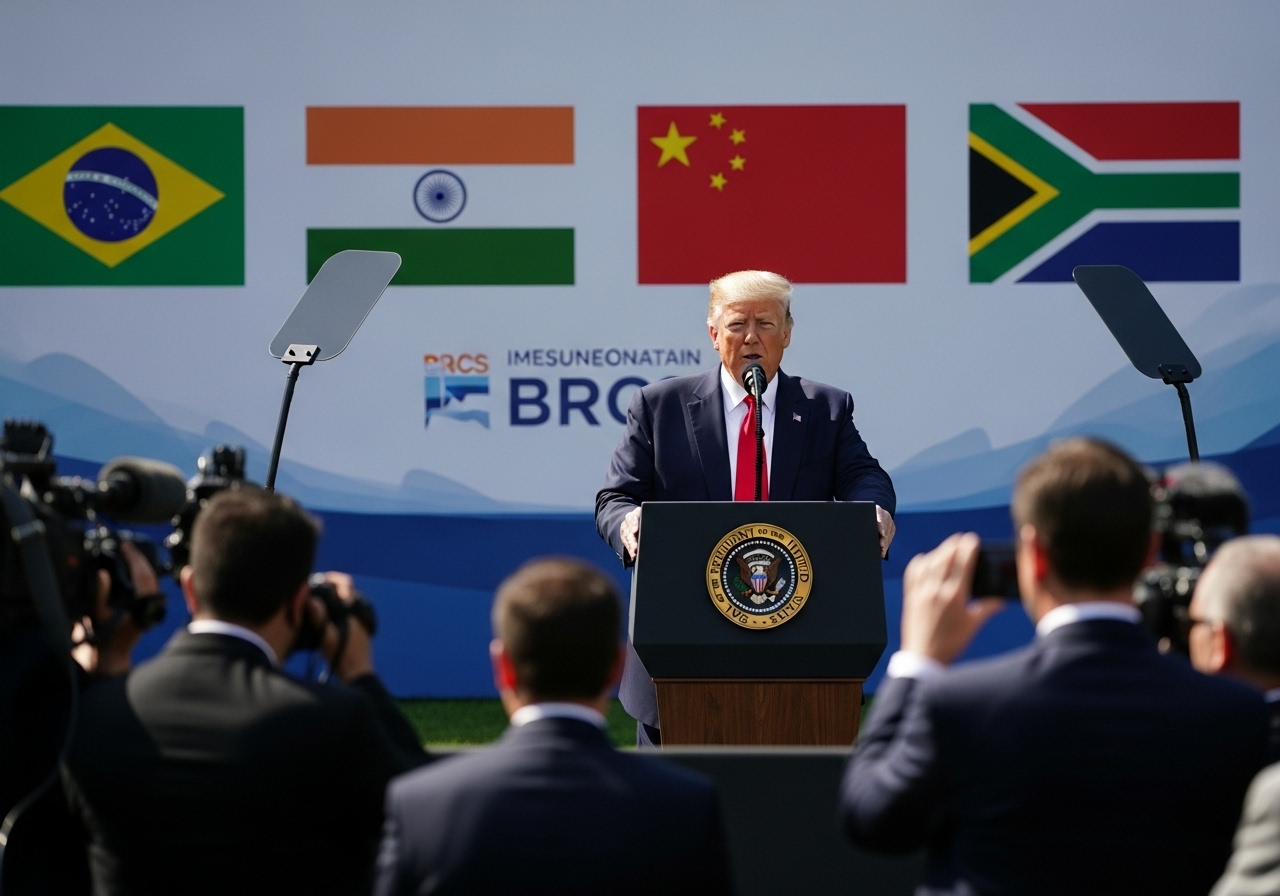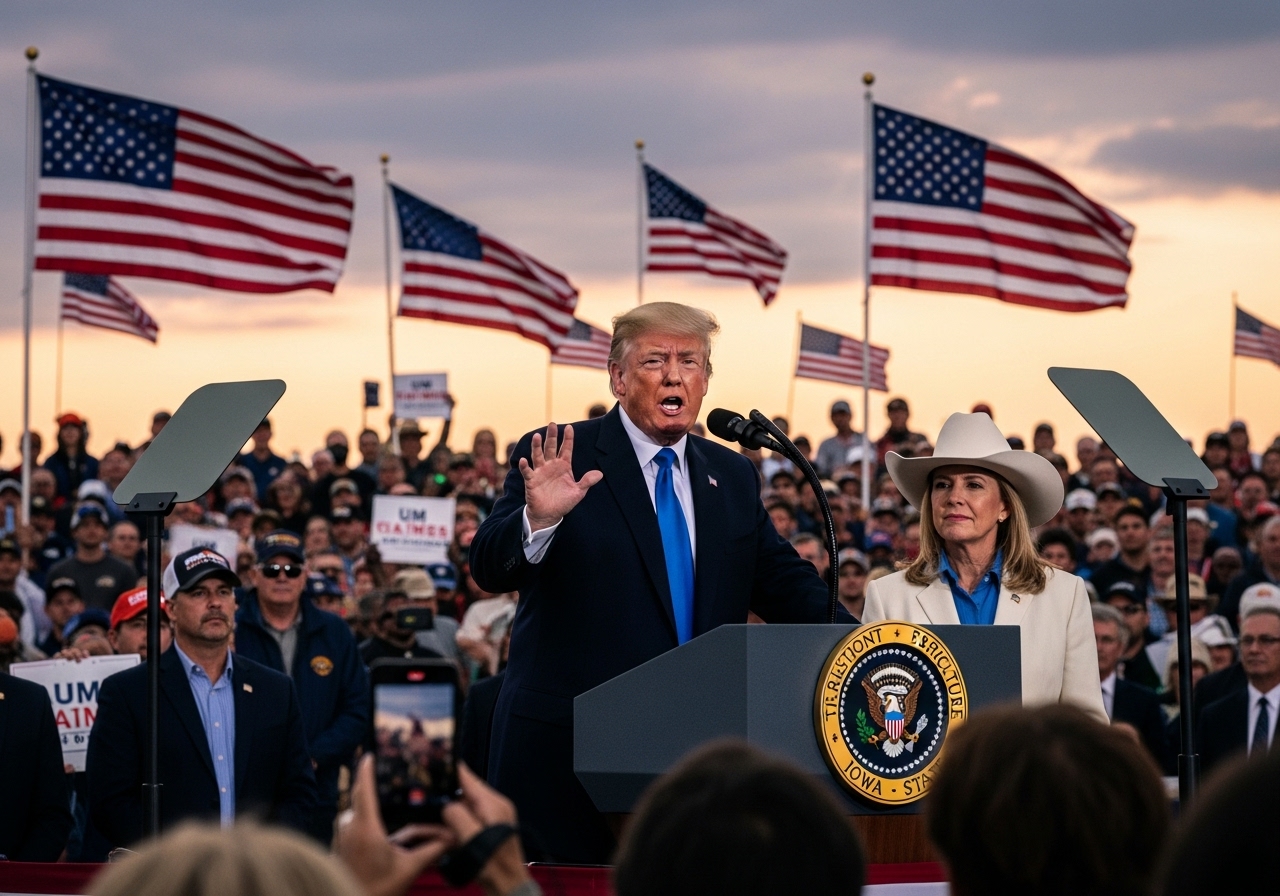President Trump’s decisive announcement of a fresh 10 percent tariff targeting countries aligning themselves with BRICS’s anti-American policies has sent ripples through global markets—and a clear message to Beijing. As the administration gears up to send out tariff letters this week, the Chinese Communist Party is scrambling to portray itself as neutral and cooperative. But we must not be fooled by this facade.
Mao Ning, spokeswoman for China’s Foreign Ministry, recently declared, “BRICS is an important platform for cooperation among emerging markets in developing countries. It advocates openness, inclusiveness, and willing cooperation. It is not a bloc for confrontation, nor does it target any country.” She added, predictably, that “Trade wars and tariff wars have no winners, and protectionism leads nowhere.”
But the American people know better. We have watched for decades as China’s trade practices gutted our manufacturing base, shuttered factories, and hollowed out communities across the heartland. Trump was elected precisely because he promised to put an end to this ruthless exploitation. The 10 percent tariff is not about protectionism—it’s about fairness, reciprocity, and putting America’s interests first.
BRICS—comprised of Brazil, Russia, India, China, South Africa, Saudi Arabia, Egypt, United Arab Emirates, Ethiopia, Indonesia, and Iran—may claim neutrality, but their recent summit declaration betrays their true colors. Meeting in Brazil, the BRICS bloc condemned tariff increases and criticized American policies indirectly, while predictably ignoring Russian aggression in Ukraine. Their complaints about tariffs being “inconsistent with WTO rules” ring hollow when they conveniently overlook China’s systematic violations of international trade norms and theft of American intellectual property.
China said BRICS does not seek confrontation and does not target any country after President Donald Trump threatened a new 10 percent tariff.
President Trump made clear in a July 6 Truth Social post that the additional levy would hit any country “aligning themselves with the Anti-American policies of BRICS,” an economic group of developing countries. He emphasized there would be no exceptions. The President’s message was unambiguous: America will no longer tolerate economic alliances built at our expense.
The upcoming tariff letters mark the end of Trump’s 90-day pause on reciprocal tariffs, a period intended to allow negotiations toward fairer trade deals. While China and the U.S. successfully reached a limited agreement that loosened some restrictions and accelerated critical rare earth exports, this hardly resolves the broader imbalance. China remains committed to dominating global markets through subsidies, currency manipulation, and forced technology transfers—practices that have devastated American industry.
Trump’s tariffs are not reckless; they’re rational and strategic. We have seen the positive impacts before. Under Trump’s leadership, manufacturing employment surged, factories reopened, and America regained its competitive edge. The goal is clear: secure better market access for American firms, protect domestic industries, and rebuild a vibrant manufacturing economy that benefits American families first.
The absence of Chinese President Xi Jinping and Russia’s Vladimir Putin from the recent BRICS summit speaks volumes about internal tensions and fragility within the bloc. Xi’s unprecedented decision to skip the summit suggests internal disputes and insecurity, while Putin—under intense international scrutiny for Russia’s actions in Ukraine—joined remotely, reminding us of the moral bankruptcy at the heart of BRICS.
American industry and workers have nothing to fear from this tariff. Instead, we should welcome Trump’s bold leadership in confronting unfair trade practices head-on. For too long, previous administrations stood idly by as China and its allies manipulated trade policies to America’s detriment. Trump’s tariffs are a necessary corrective, restoring fairness and strengthening the backbone of our economy.
Mao Ning may claim that “protectionism leads nowhere,” but she conveniently ignores that the path of submission and appeasement has already led America to economic stagnation and dependency. President Trump rejects this defeatism and instead chooses strength, fairness, and robust American prosperity. It’s time we put America First—unapologetically and decisively.





